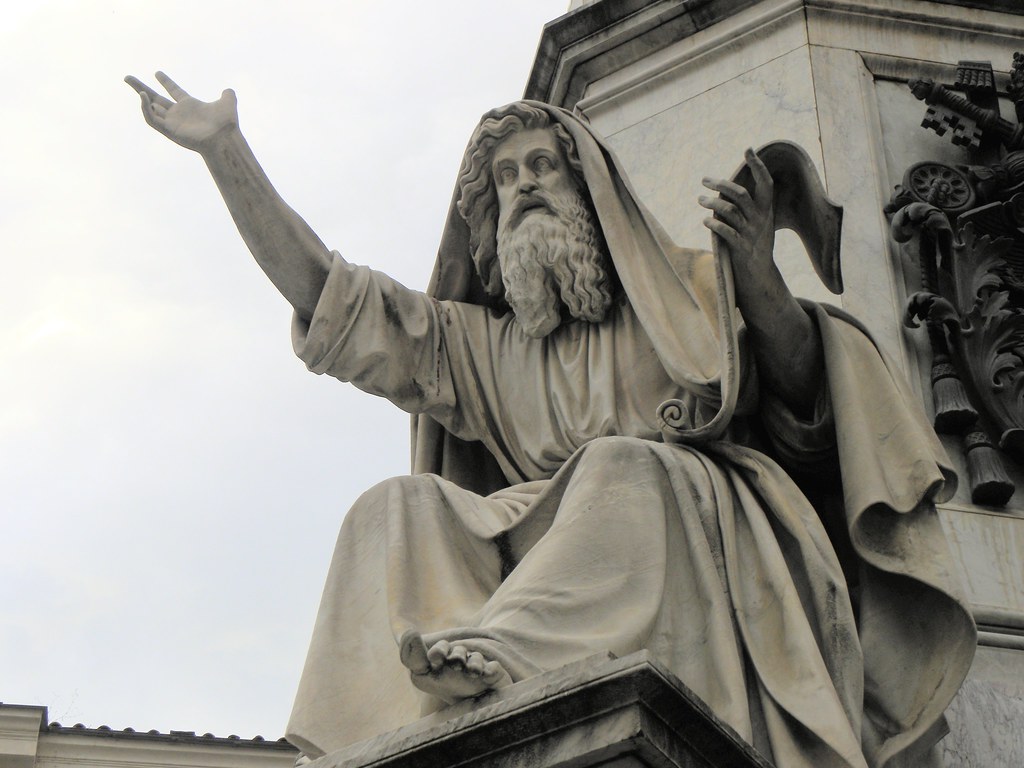This article explores the themes of seeking divine mercy and restoration in Jeremiah 14, highlighting the consequences of sin, the necessity of repentance, and the echoes of hope and faith in Jesus.

Photo by Marc-Olivier Jodoin on Unsplash | Commercial use allowed
Overview of Jeremiah 14
Jeremiah 14 presents a poignant depiction of the struggle between Judah’s sin and their repentance, highlighting the deep entrenchment in transgression and the subsequent feelings of hopelessness. It is a heartfelt plea for divine mercy and restoration in the face of despair and desolation. The book not only captures the consequences of sin but also emphasizes the indispensable nature of repentance and the transformative power of a savior who can renew hearts and enable genuine obedience from within [1].
Furthermore, Jeremiah 14 offers a message of hope for those who are willing to confront their guilt and turn back to Yahweh. It serves as a beacon, pointing towards the indispensable need for divine intervention and restoration in the midst of adversity. This call for divine mercy and restoration echoes throughout the book, underscoring the timeless importance of seeking forgiveness, redemption, and divine intervention, not only for the people of Judah but for all individuals who find themselves in similar circumstances.
In the midst of the struggles and challenges faced by the people, Jeremiah 14 resonates with an enduring theme of divine compassion and the unwavering promise of restoration, inspiring faith and hope in the ultimate redemption and renewal that comes from turning back to God. This resonates deeply with the human experience, reminding us of the enduring relevance of seeking divine mercy and restoration, and the profound impact of genuine repentance and faith in guiding us towards a path of restoration and transformation.
Understanding the Significance of the Plea for God’s Intervention
In Jeremiah 14, the plea for divine intervention is a poignant reflection of the people’s acknowledgment of their sins and backslidings. Jeremiah 14:7 vividly portrays the depth of their repentance and their earnest desire for God’s intervention in the face of their iniquities [2]. This plea is not just a cry for help; it is a profound recognition of the need for divine mercy and restoration, emphasizing the depths of their desperation and the yearning for God’s intervention in their lives.
#Jeremiah14, #Jesus, #DivineMercy, #Restoration, #Hope, #Faith, #Prayer, #BiblicalProphecy, #OldTestament, #NewTestament, #Christianity, #ProphetJeremiah, #SpiritualHealing, #Redemption, #BiblicalInterpretation, #FaithJourney, #Theology, #FaithAndBelief, #SpiritualReflection
The significance of this plea for God’s intervention lies in its demonstration of the people’s realization that they cannot overcome their entrenchment in sin on their own. It underscores their humble admission of their failings and their earnest plea for God to act for the sake of His name. This plea not only reflects a deep sense of repentance but also reveals the people’s understanding of the importance of divine mercy and restoration in their lives. Through this acknowledgment, the people in Jeremiah 14 exemplify the authentic and heartfelt nature of seeking God’s intervention, serving as a timeless example of the profound transformation that comes with genuine repentance and the pursuit of divine mercy.
Exploring Divine Mercy and Restoration
Jeremiah 14 delves deeply into the theme of seeking divine mercy and restoration, emphasizing the profound consequences of sin and the compelling necessity of repentance. The book vividly illustrates the relentless pursuit of Yahweh’s grace, even in the face of the people’s deep entrenchment in sin. For instance, in Jeremiah 14:9, the prophet Jeremiah passionately appeals to God, saying, “Why should you be like a man confused, like a mighty warrior who cannot save?” This fervent plea reflects the people’s recognition of their dire situation and their desperate need for divine intervention. It serves as a poignant portrayal of the yearning for God’s mercy and restoration.
Furthermore, the verses in Jeremiah 14 underscore the unwavering hope offered to those who are willing to acknowledge their guilt and turn back to God. This hope is beautifully encapsulated in Jeremiah 14:8, where the prophet implores, “O you hope of Israel, its savior in time of trouble, why should you be like a stranger in the land, like a traveler who turns aside to tarry for a night?” This poignant cry reflects the people’s longing for their ultimate source of hope and salvation. It serves as a powerful reminder of the enduring promise of restoration and renewal found in seeking divine mercy. The book of Jeremiah illuminates the transformative power of God’s mercy and the immeasurable hope it brings to those who earnestly seek it, echoing throughout the ages as an enduring testament to the boundless grace of Yahweh.
Echoes of Hope and Faith in Jesus
In Jeremiah 14:22, the plea for divine intervention highlights the profound truth that God is the sole source of hope for believers. This verse serves as a powerful reminder for Christians to anchor their hope in God, relying on Him for all their needs, whether physical, emotional, or spiritual. This echoes the teachings of Jesus, who encouraged his followers to place their trust in God’s provision and care, as articulated in the Gospel of Matthew: “Therefore I tell you, do not be anxious about your life, what you will eat or what you will drink, nor about your body, what you will put on. Is not life more than food, and the body more than clothing?” (Matthew 6:25) [3].
Furthermore, the emphasis on God’s promise to provide for His people when they set their hope on Him resonates deeply with the hope and faith found in Jesus. This promise aligns with the teachings of Jesus, who assured his disciples of God’s unwavering care and provision, as seen in the Gospel of Matthew: “Look at the birds of the air: they neither sow nor reap nor gather into barns, and yet your heavenly Father feeds them. Are you not of more value than they?” (Matthew 6:26) This connection underscores the enduring theme of hope and faith in Jesus, as believers are encouraged to seek God’s providence and trust in His faithful provision, mirroring the teachings and promises of Jesus Christ.
In essence, Jeremiah 14:22 not only underscores the foundational truth of God being the ultimate source of hope but also echoes the teachings and assurances of hope and faith found in Jesus. This verse serves as a poignant reminder for believers to place their confidence in God’s unfailing care and provision, mirroring the profound teachings and promises of Jesus Christ, who embodies the epitome of hope and faith for all who believe.
 Application to Modern-Day Faith
Application to Modern-Day Faith
The timeless teachings of Jeremiah 14 hold significant relevance in navigating the complexities of modern-day challenges and faith. In a world marked by moral decay and spiritual indifference, the book of Jeremiah serves as an unwavering beacon of hope and restoration. It resonates with individuals grappling with the overwhelming pressures of contemporary society, offering solace and guidance in the face of adversity.
For instance, just as Judah faced the consequences of their sin and the subsequent need for repentance, the modern world wrestles with its own set of moral and ethical dilemmas. The profound parallels between the challenges encountered by the people of Judah and those confronted by individuals today underscore the enduring relevance of seeking divine mercy and restoration. The call to turn to God and His Word for peace, hope, and eternal life echoes across centuries, providing a sturdy foundation for modern-day believers to anchor their faith amidst the turbulence of the present age.
Furthermore, the teachings of Jeremiah 14 illuminate the path to spiritual renewal, offering a roadmap for contemporary believers to navigate the complexities of life with unwavering faith and hope. By drawing inspiration from the book’s profound insights, individuals can find strength in their journey of faith, knowing that the timeless principles of divine mercy and restoration continue to resonate deeply in the hearts of those who seek solace and redemption.
 Conclusion
Conclusion
The timeless message of Jeremiah 14 continues to resonate in the modern world, inspiring faith, hope, and the pursuit of divine mercy and restoration. This profound biblical text serves as a poignant reminder of the enduring human struggle with sin and the unwavering grace of God. Through the portrayal of Judah’s sin and their hopelessness in repentance, the book of Jeremiah not only provides a historical account but also offers a compelling narrative that transcends time, inviting individuals to reflect on their own shortcomings and the need for divine intervention.
In today’s world, where moral decay and spiritual indifference are prevalent, the echoes of hope and faith found in Jeremiah 14 are more relevant than ever. The plea for God’s intervention, the acknowledgment of sin, and the yearning for forgiveness depicted in this passage are emblematic of the universal human experience. It invites individuals to confront their own iniquities, seek repentance, and turn back to God as a source of divine mercy and restoration. By doing so, the book of Jeremiah provides a roadmap for modern-day believers, guiding them to navigate the complexities of life with a steadfast faith in God’s redemptive power [2].
In essence, Jeremiah 14 serves as a beacon of hope, offering a compelling narrative that encourages individuals to embrace faith, seek divine mercy, and pursue restoration in the midst of life’s challenges. It beckons believers to look beyond their circumstances, acknowledge their need for God, and find solace in the unwavering promise of His grace and redemption. Jeremiah 14 is not simply a historical account but a timeless testament to the enduring love and compassion of God, resonating with individuals across generations and serving as a source of unwavering hope and inspiration

 Application to Modern-Day Faith
Application to Modern-Day Faith Conclusion
Conclusion

